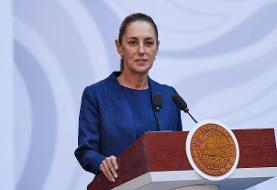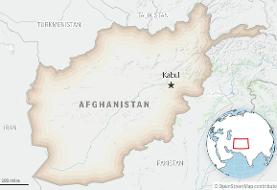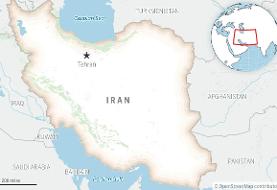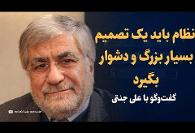German Lawyer Makes an Ethical Legal Case for Iran's Claims to Three Islands
Prominent German attorney and human rights activist Dr. Dr. Seyed Shahram Iranbomy, also a member of the Municipal Foreigners' Representation (Kommunalen Ausländervertretung, KAV) in Frankfurt AM, Germany, advises the European Union against supporting foreign states' territorial claims on the Iranian islands of Tumb, Tumb and Abu Musa because "it is contrary to international law and contradicts the principles that the EU staunchly defends in other parts of the world, such as Ukraine. This behavior reveals a double standard that not only threatens our territorial integrity but also undermines the EU's credibility.
The historical affiliation of the islands to Iran
For the people of Iran, the three islands of Lesser Tumb, Greater Tumb and Abu Musa are inextricably linked to their history. They have been part of Iran for centuries. Historical documents and records show that Iranian rulers such as the Safavids and later the Qajars continuously exercised control over these islands. Even in the 19th century, when Great Britain gained influence in the region, the islands' belonging to Iran was unchallenged. This uninterrupted administration over centuries forms the basis for the principle of "effective control".
2. International law aspects and relevant ICJ precedents
The International Court of Justice (ICJ) has in a number of cases affirmed fundamental principles of international law that underpin the legitimacy of Iran's claim to the islands. The most important of these principles and their practical application to the islands of Lesser Tumb, Big Tumb and Abu Musa are explained in detail below.
a) Principle of “effective control”
The principle of "effective control" in international law states that a state that exercises continuous administration and control over a territory acquires the right to that territory. This principle has been confirmed in several ICJ decisions:
"Minquiers and Ecrehos" case (1953) between France and the United Kingdom : In this case, the ICJ ruled in favor of the United Kingdom because it had exercised effective and uninterrupted administration of the disputed archipelago. The ICJ took into account that the United Kingdom had maintained historical administrative measures, military presence and civil control in the region. Analogous to this case, Iran has exercised effective control over Little Tumb, Big Tumb and Abu Musa for centuries, including administration, development of infrastructure and investment in the local population.
"Sovereignty over Pulau Ligitan and Pulau Sipadan" (2002) between Indonesia and Malaysia : The ICJ recognized Malaysia's sovereignty over the two islands because Malaysia had exercised control through administrative measures and the construction of infrastructure such as lighthouses. Similarly, Iran has made continuous administrative measures and investments in the infrastructure of the three islands over the years, demonstrating its effective control over them.
These ICJ decisions demonstrate that effective and continuous control over a territory is recognized under international law and contributes to the consolidation of sovereignty. Iran meets all these criteria for Little Tumb, Big Tumb and Abu Musa, which affirms its territorial integrity.
b) Principle of historical sovereignty
The ICJ has recognized the principle of historical sovereignty in various cases. According to this principle, the sovereignty of a state over a territory is strengthened by historical documents and long-standing administrative measures.
Temple of Preah Vihear case (1962) between Cambodia and Thailand : The ICJ ruled in favour of Cambodia and confirmed its sovereignty over the temple because historical documents and maps proved that the temple belonged to Cambodia. Similarly, there are historical records confirming Iran's sovereignty over the three islands. These documents date from long before the establishment of the UAE and prove that the islands have historically always belonged to Iran. Through this precedent, the ICJ has shown that historical records and the long-standing ownership of a territory provide a legitimate basis for sovereignty claims.
c) Principle “Uti Possidetis”
The principle of "uti possidetis" states that new states must adopt existing colonial borders. The ICJ has applied this principle in several cases to resolve territorial disputes:
Burkina Faso/Mali case (1986) : The ICJ upheld the application of the "uti possidetis" principle to recognize the existing borders of the two former colonial states and to reject territorial claims. Since the UAE was only founded in 1971, this principle stipulates that existing borders must be respected. Little Tumb, Big Tumb and Abu Musa were already firmly in Iranian possession before the UAE was founded, and the "uti possidetis" principle obliges new states like the UAE to respect these borders. These decisions make it clear that new states may not lay claim to territories that belonged to another state before their founding.
d) Principle of binding agreements
Another important precedent of the ICJ relates to the binding nature of bilateral agreements:
Libya/Chad case (1994) : The ICJ ruled that an intergovernmental agreement is binding if both parties have given their consent. In the Abu Musa island case, Iran and the Emirate of Sharjah signed an agreement in 1971 that recognized Iranian sovereignty while allowing for resource sharing. Sharjah confirmed that Iran had military control and international representation of the island. This agreement remains binding and provides further proof of Iran's legitimate sovereignty over the island.
3. Cultural connection of the islands with Iran
You can read the full opinion letter HERE: https://www.anwalt.de/rechtstipps/voelkerrechtliche-argumente-zu-den-anspruechen-irans-auf-die-inseln-kleiner-tumb-grosser-tumb-und-abu-musa-233459.html
Related to Persian Gulf:
- Will Trump Stage a War Against China or Iran?
- Iranian American Commander of the US Navy Aircraft Carrier May Be Deployed to Persian Gulf
- A US-Iran War Can Start in Persian Gulf by A Third Party, According to Libertarian Congressman (Video)
- Zarif Uncensored: Candid Talk about Caspian Sea, Nuclear Deal and Chinese Rights in Persian Gulf
- Trump's Grand Bargain with Putin over Iran, according to The New Yorker
- Video: Saudi Arabia pays Iranian-American brothers to lose with Iranian flag in WWE charade!
- In Pictures: Travel Destinations in Iran
- Iranian Theaters Screen Animated Assault on US Navy (video)
- In Pictures: Tradtional Camel's back Wedding in Iran's Gheshm Island
- U.S. Navy's Nitze destroyer approached by Iranian boats (video)
- Detention and interview of US Sailors, Video Footage from Iranian TV
- Saudis snubbed both US and Iran, Experts discuss on Charlie Rose (Video)
- Saudi Arabian posts in Iran attacked after Shia cleric hanged (videos)
- Upclose with ISIL, A Vice documentary video
- US experts: Iran closer to US interests than Saudi, Pakistan, Egypt
Related to Europe:
- From Biden's Gaffe to Internet Speed and Nuclear Deal: Iranians Impacted by War in Ukraine
- Controversy over Children of Ahmadinejad's Cultural Advisor
- The Iranian French Azerbaijani Ukrainian, Muslim Jewish Catholic, Filmmaker Dies of Coronavirus
- Video: Compare Words in Ancient Iranian (Avestan) and Indo-European Languages
- Another Iranian Family Seeking Asylum Drowns in English Channel
- Cultural Clash Between Germany and Spain Highlighted in This Controversial Picture
- Spanish Prime Minister Quotes Persian Poet in Inspirational Speech to His Nation About Coronavirus
- Juventus Women Signs Iranian British French Footballer
- Young Iranian Musician Doctor Appointed as Head of Medical School at Imperial College, London
- How Trump Sanctions Stopped Charitable Polish Citizens Help a Stranded Iranian Trucker
- Belgian Team Wins Critical Game, Thanks to Goals by Iranian footballers!
- Iranian Doctor, Wife of Wealthy Crime Leader, Shot Dead Holding Baby in Sweden
- Racist Greek Politician Calls Iranian Refugee Monkey!
- Iranian British Hayley Tamaddon Finds Love Again? Announces Pregnancy at 42!
- Persian Physician's Book Was Translated, Taught and Cherished in Ireland Centuries Ago




















































